Books
Wife Gets Smart, Makes Husband Happy
In 1941, Safeway began including comic strips in their newspaper ads. The comics continued throughout World War II until 1947.Nat Gertler collected these comic-strip ads together in a book titled Wife Gets Smart, Makes Husband Happy. It's a collection WUvies might enjoy since it offers a bizarro window onto the concerns of mid-20th century American families.
One theme in particular emerges repeatedly: wives desperately trying to manage the moods of their husbands (the husbands being either cranky, obnoxious, clueless, or lethargic). Somehow the wives always manage to save the marriage by shopping at Safeway.
More info: AboutComics.com, Amazon
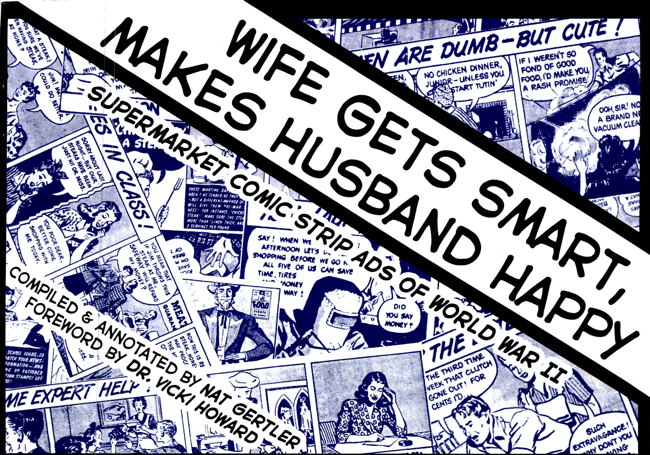


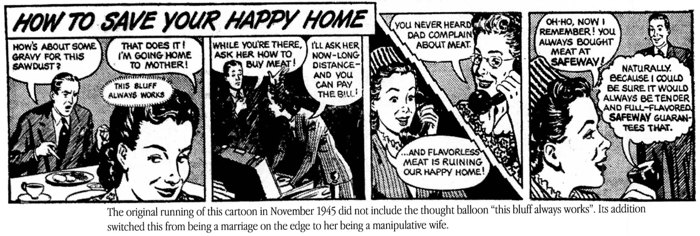

Posted By: Alex - Sat Jul 08, 2023 -
Comments (0)
Category: Advertising, Comics, Books, 1940s
Hand Grenade Throwing as a College Sport
Lewis Omer’s Hand Grenade Throwing as a College Sport, published in 1918, appears in various lists of books with odd titles.I was curious about the contents of the book, but I initially came up empty handed. The British Library blog reported that it was a nine-page booklet, but that no copies of the title seemed to remain in existence. The Library of Congress didn't have a copy, nor did any other libraries. And the British Library's own copy was destroyed during aerial bombing in World War II.
But after some searching I found what appears to be the text of Omer's booklet reproduced in the Spalding's Athletic Library Official Handbook, published in 1919, and viewable at archive.org.
So why hand-grenade throwing as a college sport? Because, at the time Omer wrote his book, young American men were being sent to fight in World War I, and some colleges had introduced grenade throwing as a sport, to prepare them for the war. Using dummy grenades, obviously, rather than live ones. Omer's booklet provided the official rules for the new sport.
Some more info about the history of grenade throwing as a sport can be found at the History Of The California Interscholastic Federation Southern Section.
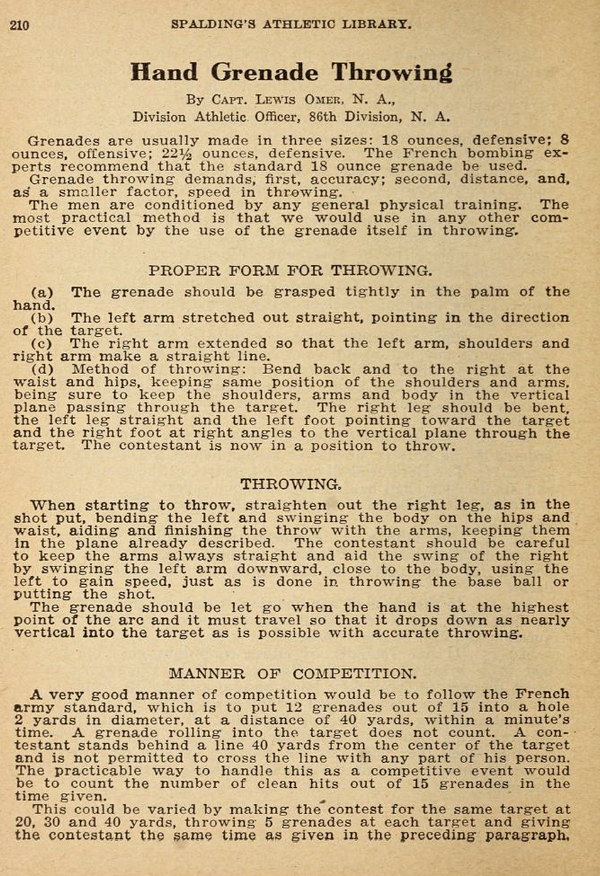
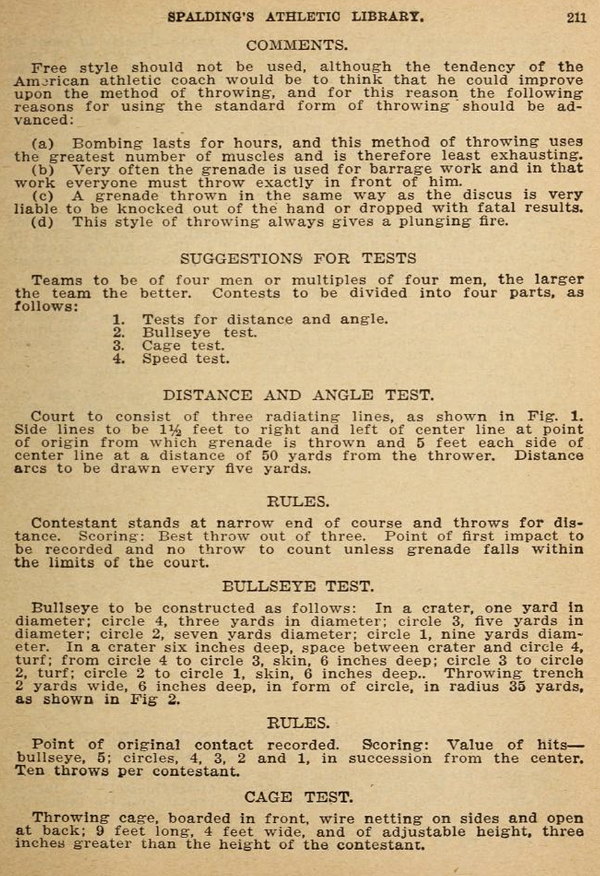
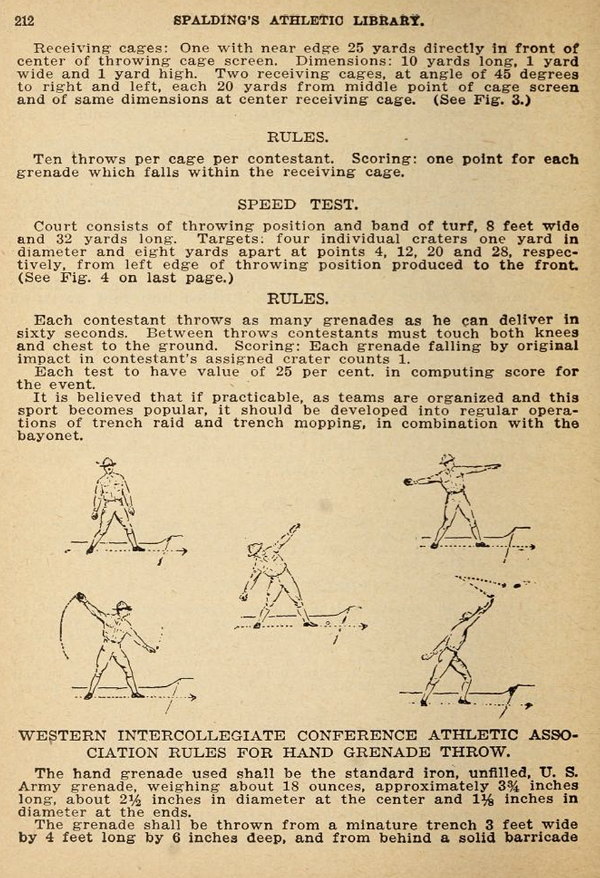
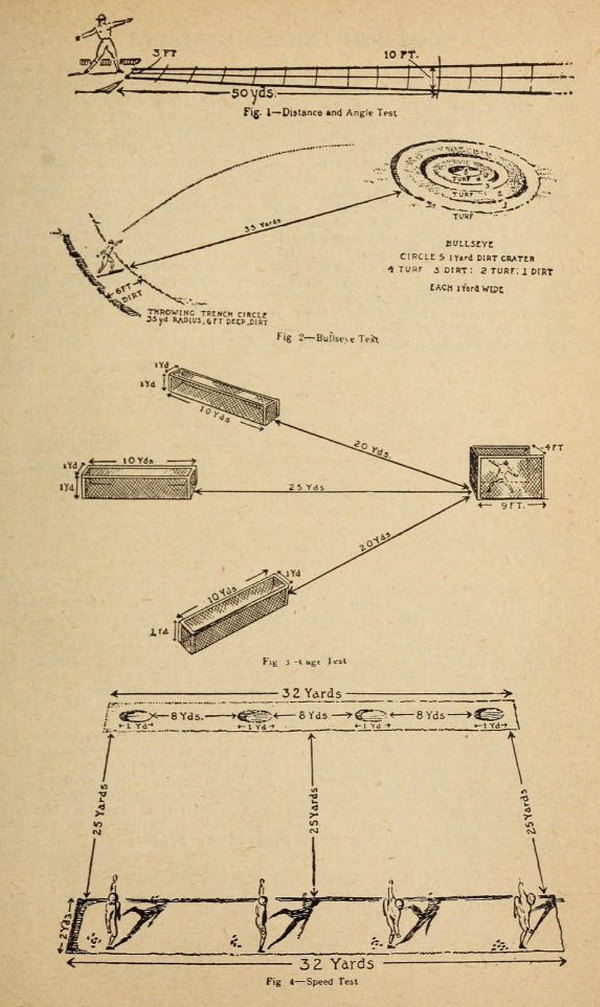
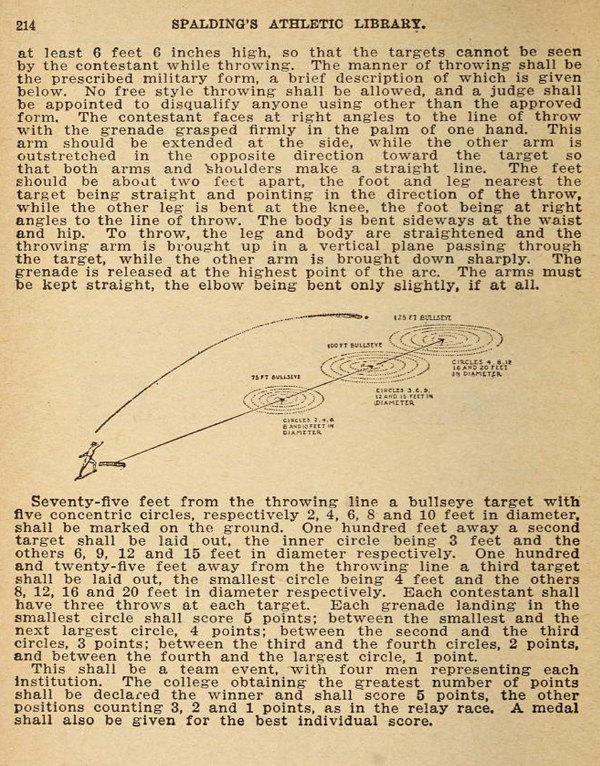
Posted By: Alex - Thu Jun 22, 2023 -
Comments (5)
Category: Sports, Books, 1910s, Weapons
The Doomsday Will of Maurice Dekobra
According to Wikipedia, during the 1920s and 30s Maurice Dekobra was probably the best-known French writer in the world. His most famous book was La Madone des Sleepings (The Madonna of the Sleeping Cars), which according to its Amazon blurb is "one of the first and most influential spy novels of the twentieth century."I hadn't heard of it. This is probably because (again according to Wikipedia) by the 21st Century Dekobra had become a "total unknown."
In 1945, while Dekobra was still near the height of his fame, he drew up an unusual will. He left his entire library of 17,000 books as well as his art collection to the town of Papeete in Tahiti. He did this because he figured that big cities such as Paris and London would probably soon be destroyed by nuclear bombs. But Papeete might survive. Therefore, so might his books.
Dekobra ended up living until 1973. I haven't been able to find out if, by that time, he had changed his will, or if Papeete ever got his books.
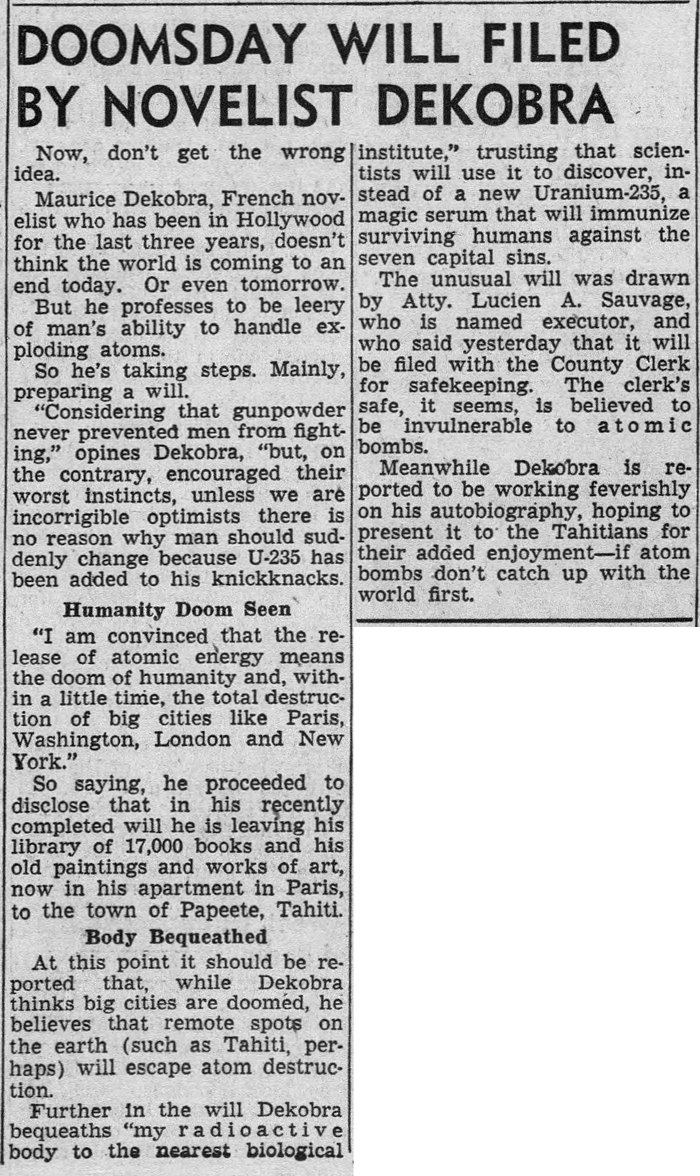
Los Angeles Times - Oct 3, 1945
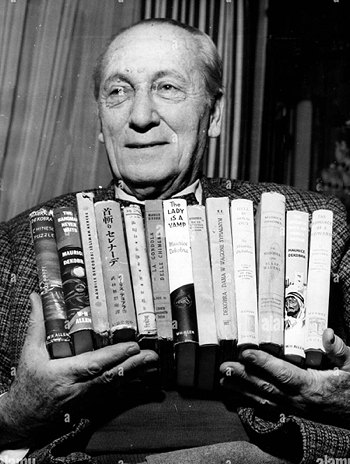
Dekobra in 1965 holding some of his books
Posted By: Alex - Thu Jun 15, 2023 -
Comments (3)
Category: Death, Inheritance and Wills, Books
Kicked To Death By A Camel
According to the article "Camel-Related Deaths" in The American Journal of Forensic Medicine and Pathology:Some searching for examples of camel-related deaths led me to discover a book with the oddball title, Kicked To Death By A Camel, published in 1973.
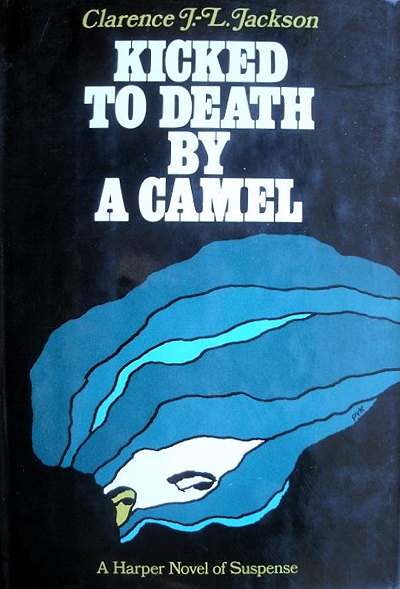
The author, Clarence J.L. Jackson, was a pseudonym for Richard W. Bulliet, a history professor at Harvard (and later Columbia University). On his Amazon page he writes:
Sounds like it could be a fun read. If you're interested, you can either buy a used copy or check it out via archive.org.
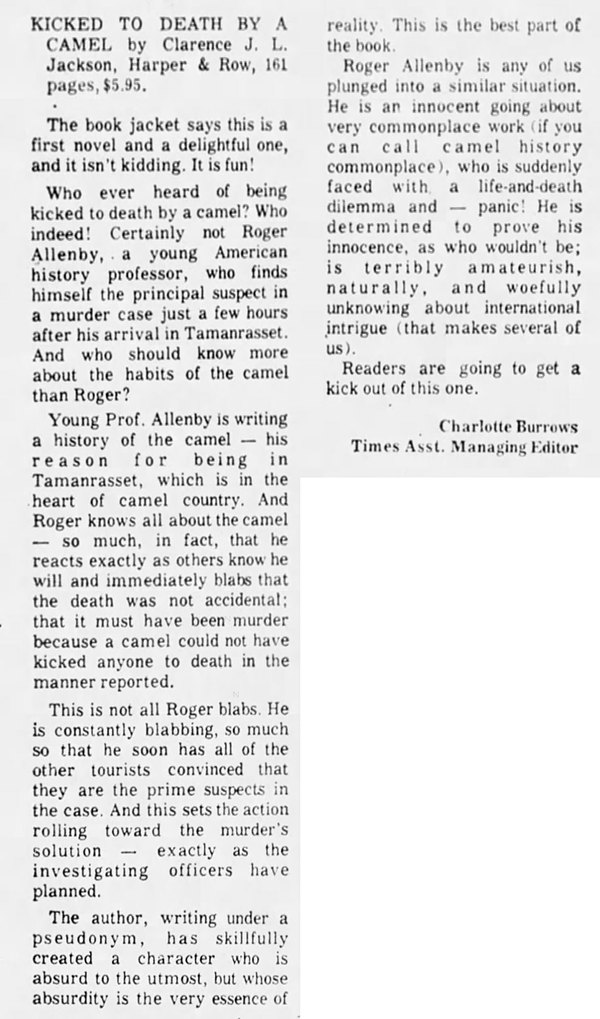
Shreveport Times - Sep 23, 1973
Posted By: Alex - Mon May 22, 2023 -
Comments (1)
Category: Animals, Death, Books, 1970s
Thirty Years Among the Dead
The Wikipedia page for Wickland, where we learn:Wickland turned away from conventional medical psychology and toward the belief that psychiatric illnesses were the result of influence by spirits of the dead. Wickland came to believe that a large number of his patients had become possessed by what he called "obsessing spirits", and that low-voltage electric shocks could dislodge them, while his wife Anna acted as a medium to guide them to "progress in the spirit world". Spiritualists considered him an authority on "destructive spirits" and he wrote a book in 1924, Thirty Years Among the Dead, detailing his experiences as a psychical researcher.[3]
Wickland was convinced that he was in contact with a group of spirits known as the "Mercy Band" who would remove the possessors, and help them in the spirit world. Psychologist Robert A. Baker listed Wickland and Arthur Guirdham as early psychiatrists who preferred to "ignore the science and embrace the supernatural".[4]
Read his book at the Internet Archive.
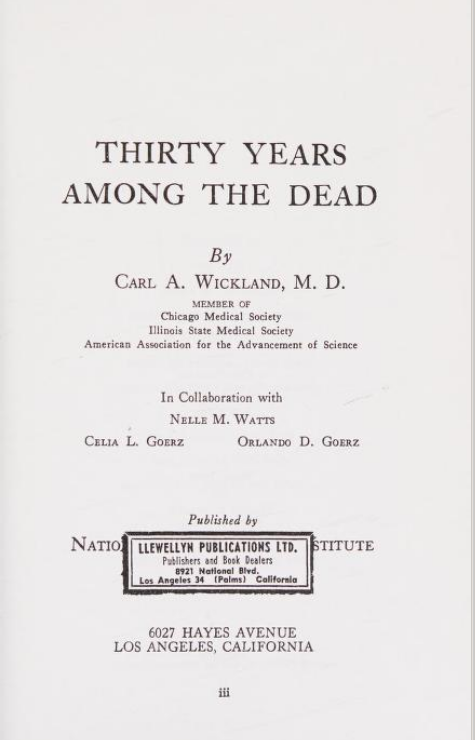
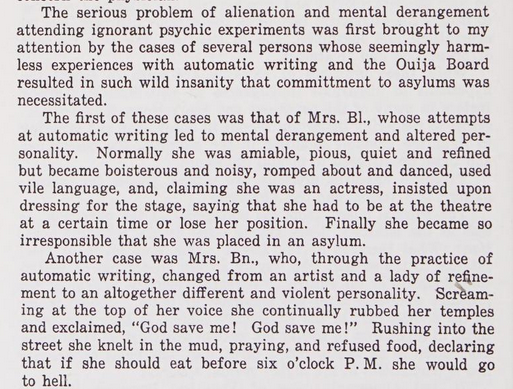
Posted By: Paul - Mon Mar 13, 2023 -
Comments (0)
Category: Death, Supernatural, Occult, Paranormal, Books, 1920s
Amorous Dietitian
Published in 1961. It's got an intriguing title. However, a review on Goodreads reveals that "The title and the cover text have nothing to do with anything in the book."More info: Pop Sensation
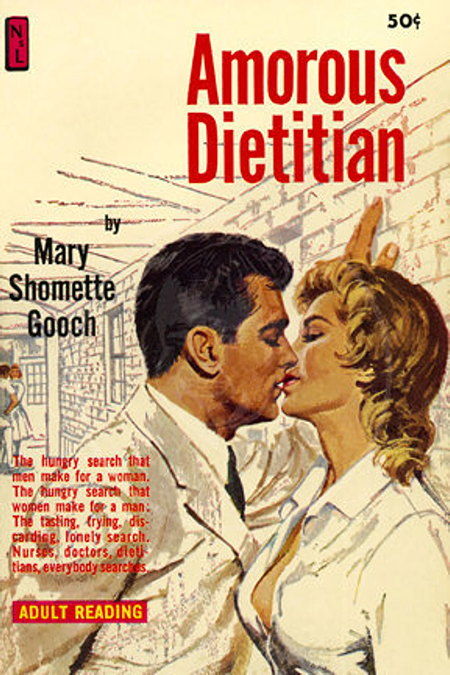
Posted By: Alex - Tue Feb 28, 2023 -
Comments (5)
Category: Books, 1960s, Dieting and Weight Loss
I Dream of Madonna
Thirty years ago, Madonna seemed to be invading the psychic spaces of sleepers. The phenomenon was recorded in I DREAM OF MADONNA, which may be read here, at the Internet Archive.One wonders if today those dreams might tend towards the disturbing.
Read a contemporary review here.
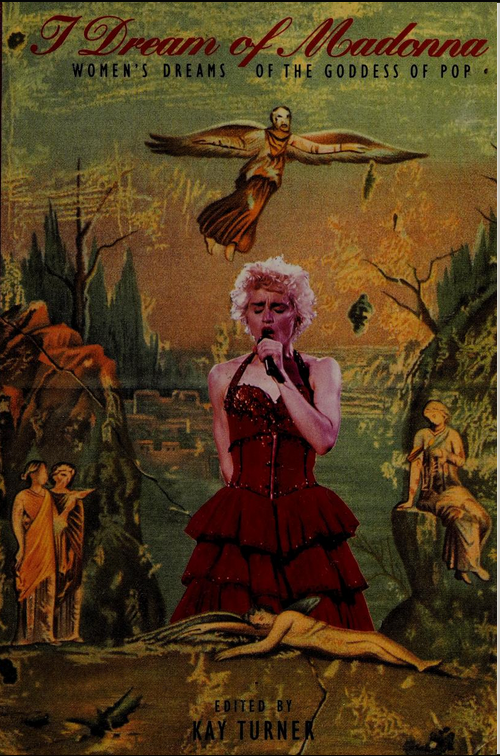
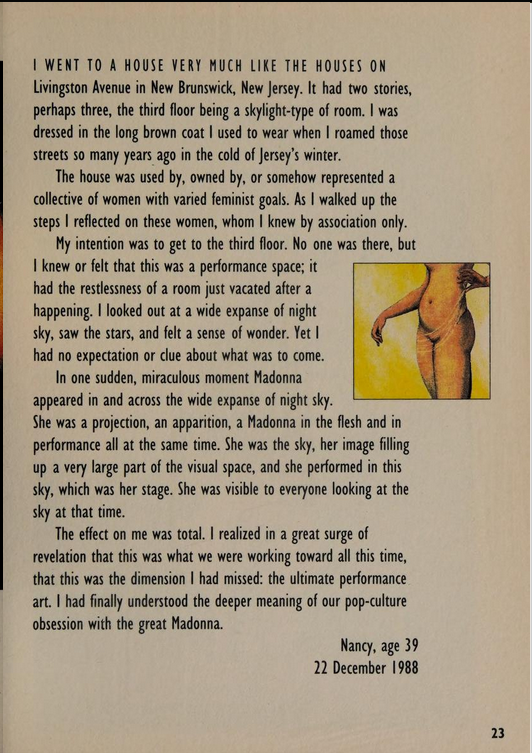
Posted By: Paul - Mon Feb 20, 2023 -
Comments (0)
Category: Celebrities, Dreams and Nightmares, Music, Books, 1990s
God Speaks To Modern Man
Looks like he's asking for a raise.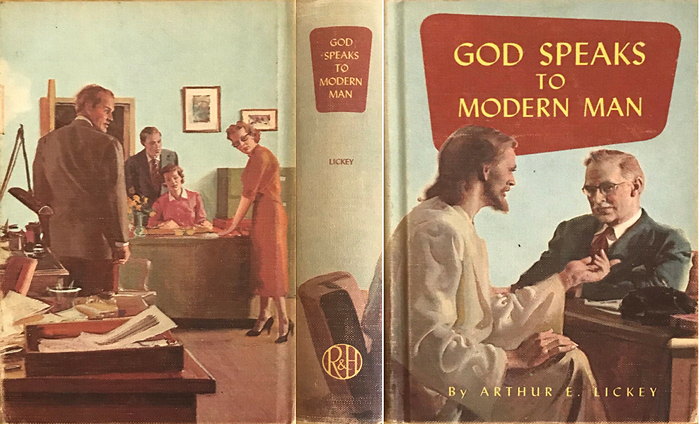
The illustrations inside the book (which you can read for free via archive.org) are equally odd.
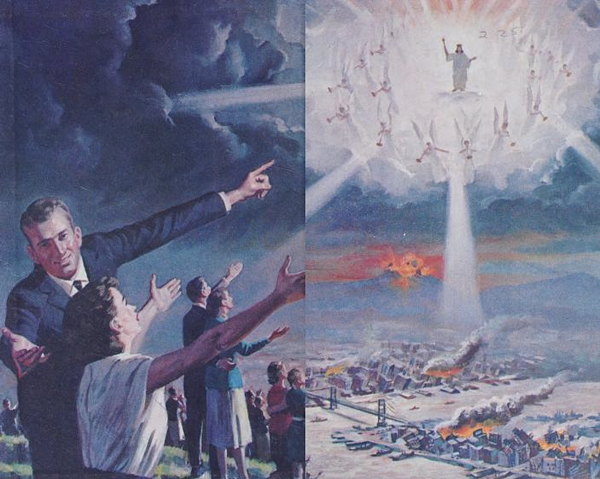
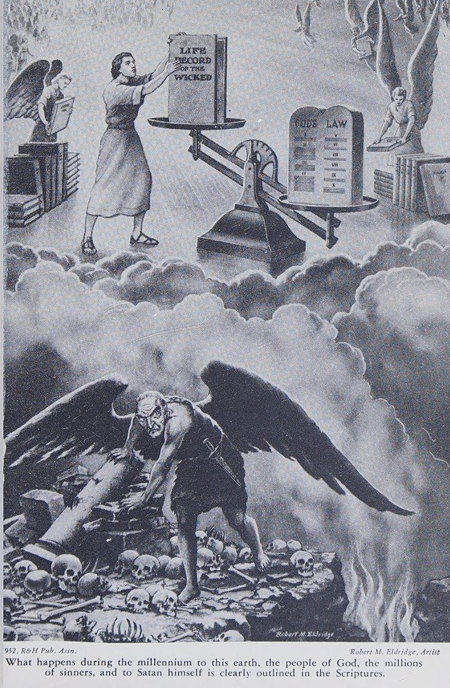
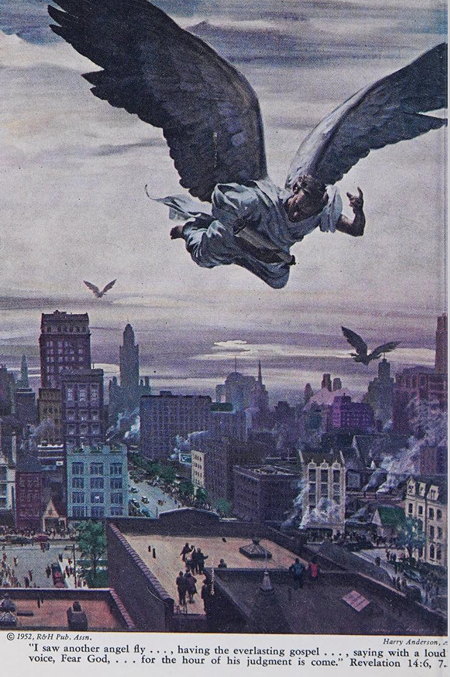
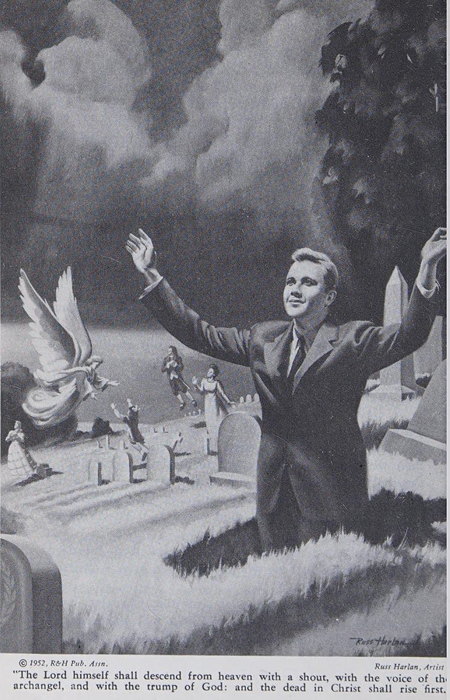
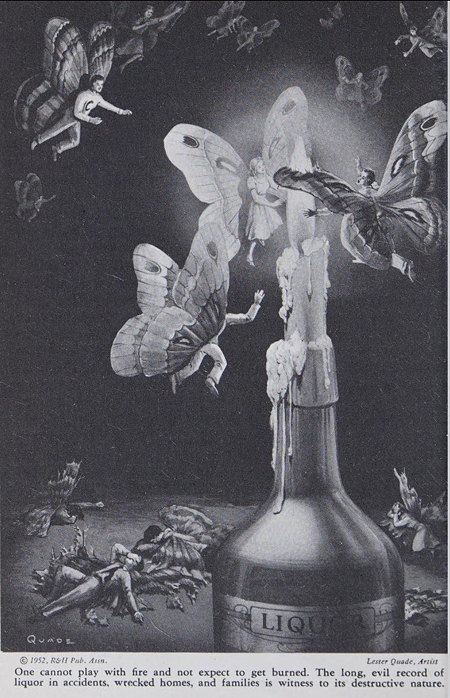
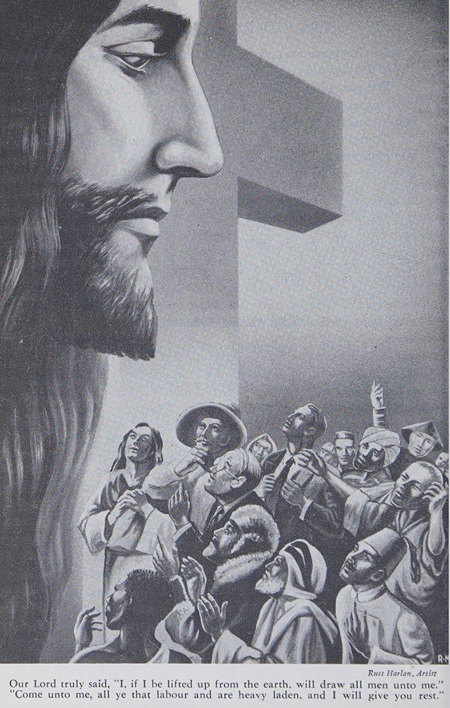
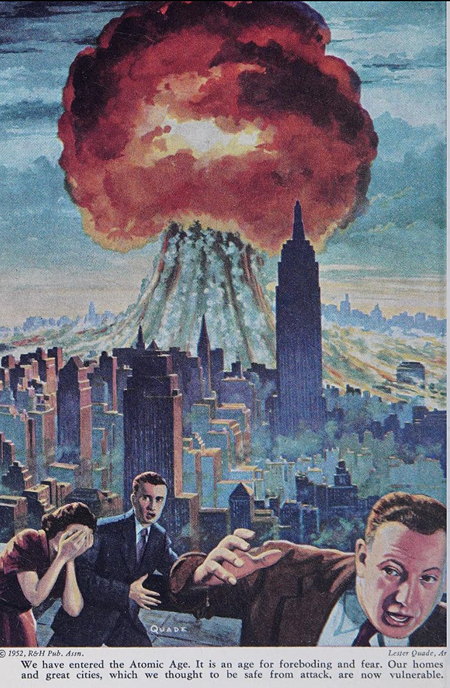
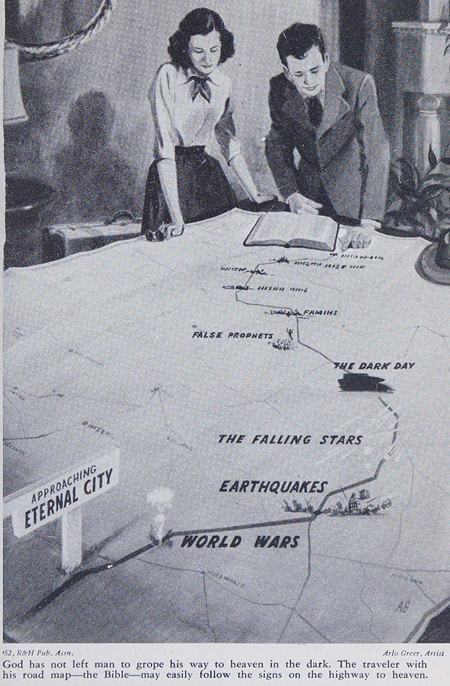
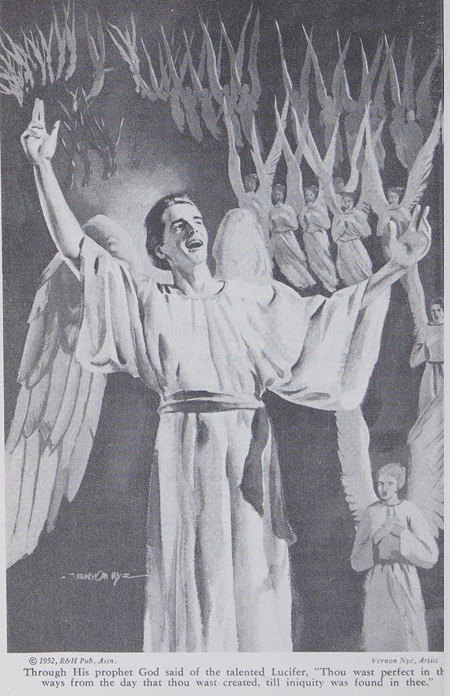
Posted By: Alex - Mon Feb 06, 2023 -
Comments (3)
Category: Religion, Books, 1950s
Live Alone And Like It
I posted two days ago about the 1937 book How To Live Without A Woman, which celebrated the bachelor lifestyle. But what about women who wanted to live without a man... or even without another woman? Marjorie Hillis's Live Alone And Like It (1936) was the book for them.Based on the review below, it seems that while Hillis offered some good advice for women living alone, she was less persuasive about them liking it:
You can read the book for free at archive.org.
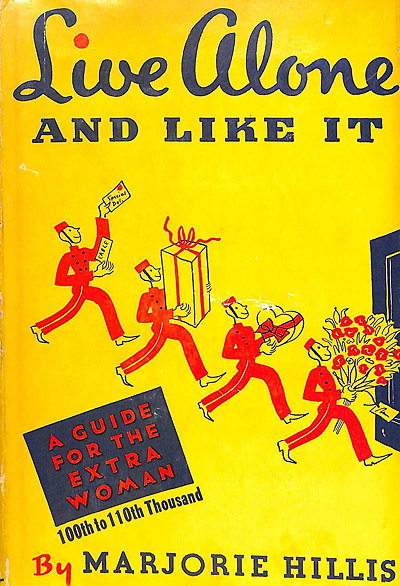
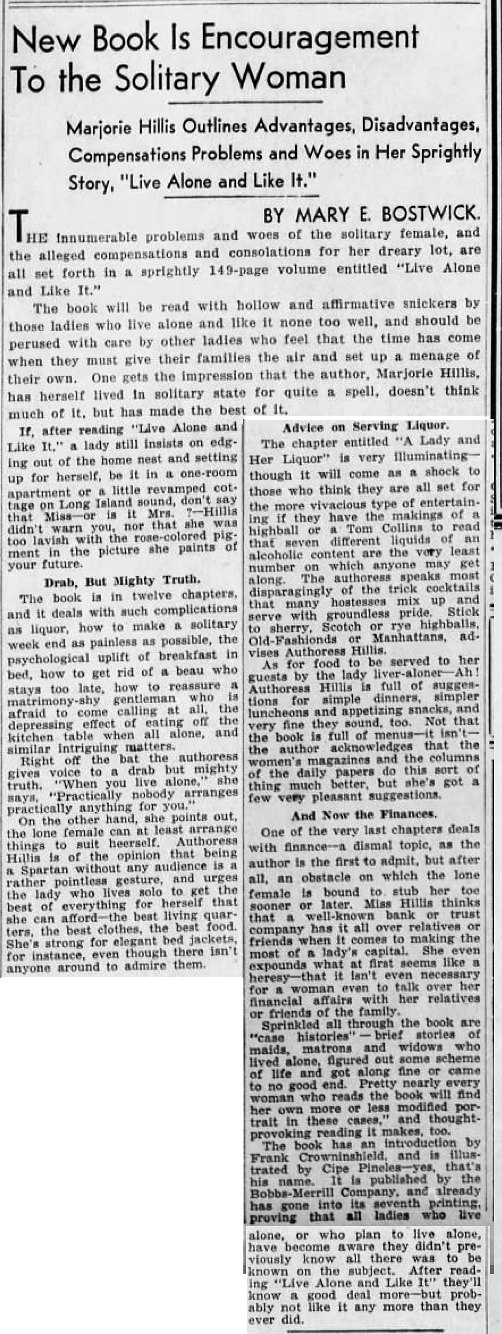
Indianapolis Star - Oct 4, 1936
Posted By: Alex - Thu Feb 02, 2023 -
Comments (4)
Category: Books, 1930s, Women
How to live without a woman
Alexander Wright's 1937 book, How To Live Without A Woman, was a celebration of bachelorhood. But it seems that Wright's strategy for life without a woman was to get his female friends to feel sorry for him and do his housework for him.Doesn't really seem like he was living without a woman if he was still getting women to do all his work. And you have to wonder how long he managed to keep any female friends before they figured out what was going on.
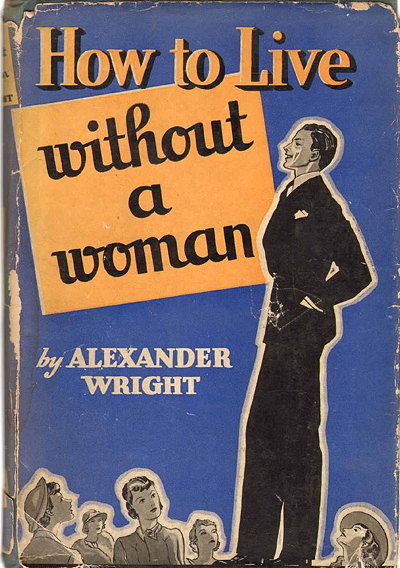
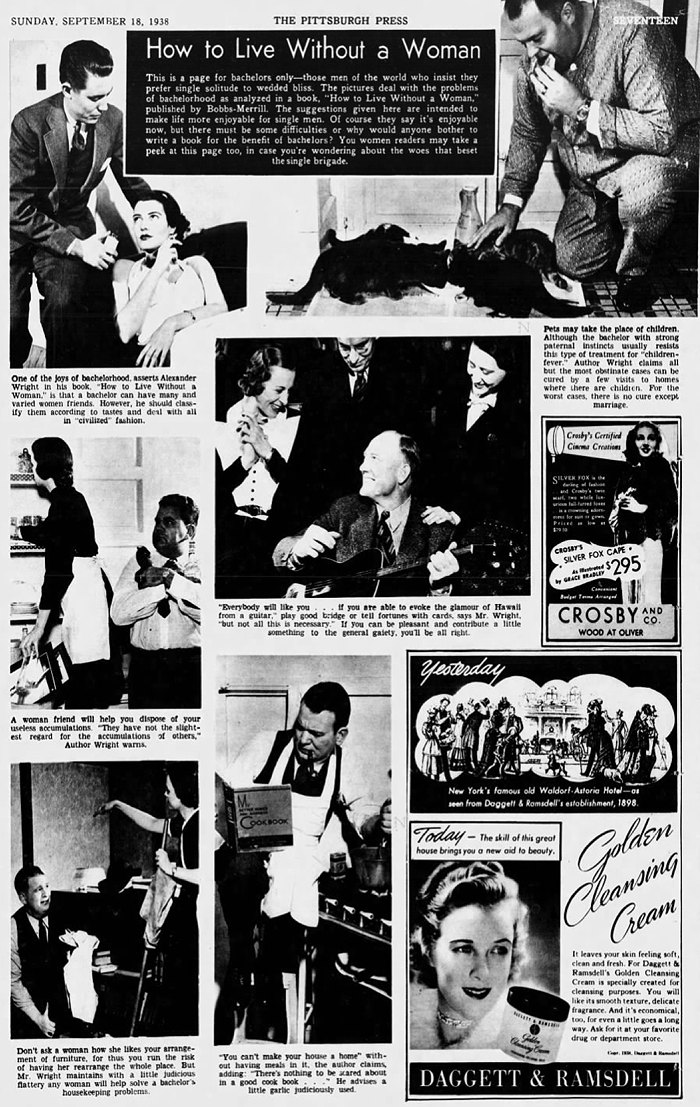
Pittsburgh Press - Sep 18, 1938
Posted By: Alex - Tue Jan 31, 2023 -
Comments (2)
Category: Gender, Men, Women, Books, 1930s

| Who We Are |
|---|
| Alex Boese Alex is the creator and curator of the Museum of Hoaxes. He's also the author of various weird, non-fiction, science-themed books such as Elephants on Acid and Psychedelic Apes. Paul Di Filippo Paul has been paid to put weird ideas into fictional form for over thirty years, in his career as a noted science fiction writer. He has recently begun blogging on many curious topics with three fellow writers at The Inferior 4+1. Contact Us |




